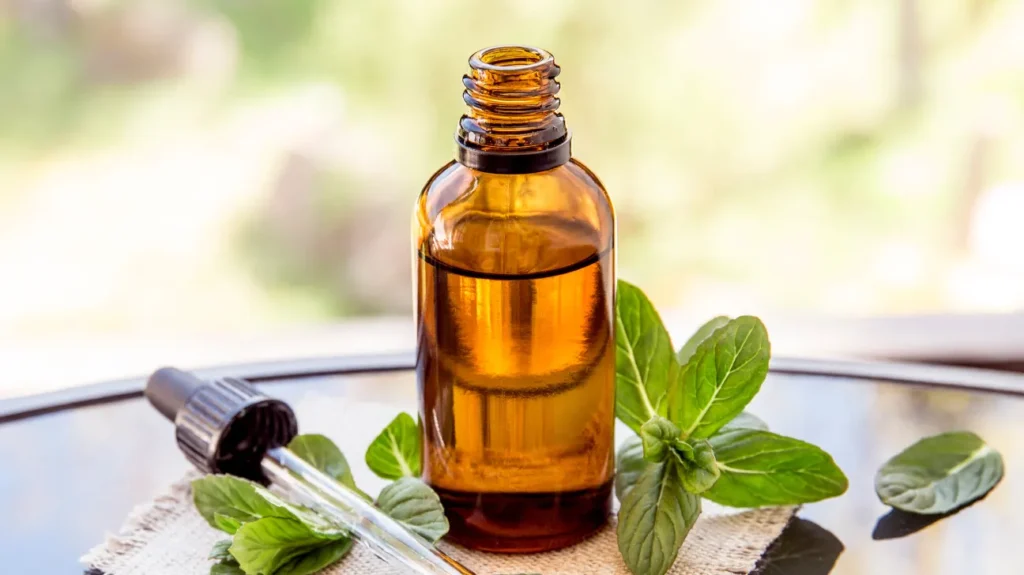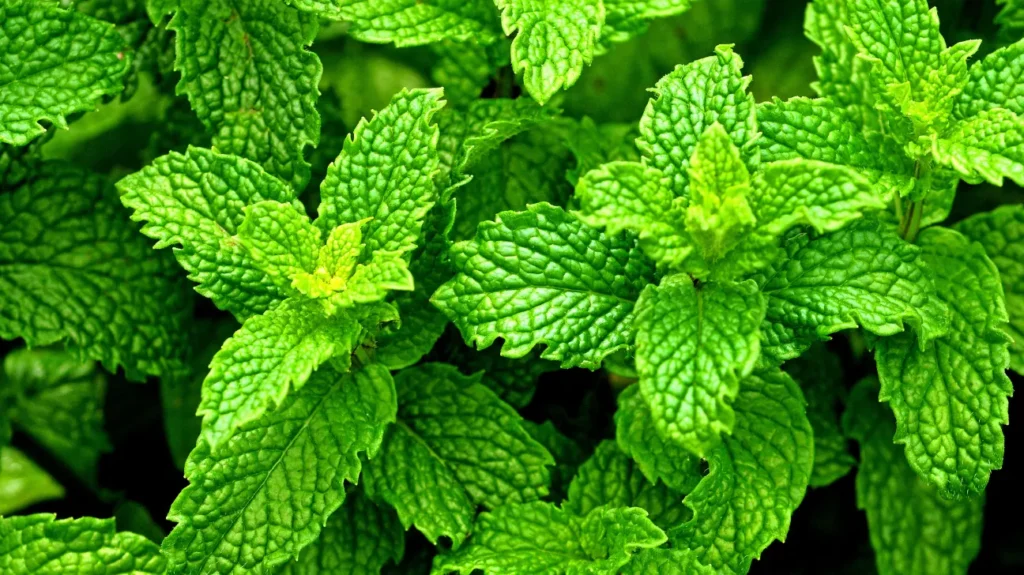Peppermint, a hybrid plant created by crossing watermint and spearmint, is known for its fresh, invigorating aroma and its applications across culinary, therapeutic, and medicinal uses. Increasingly, peppermint has gained attention as a natural supplement with potential nootropic effects. This article explores peppermint’s origins, its active compounds, physiological mechanisms, and evidence regarding its role in cognitive enhancement, as well as recommended dosages, possible side effects, and interactions with other supplements and medications.
You May Also Like:
Turmeric: Benefits, Dosage, Side Effects, Drug Interactions, and Other Important Information
Sources of Peppermint
Peppermint, scientifically known as Mentha piperita, has been used historically in Europe, North America, and the Middle East for both culinary and medicinal purposes. The plant’s leaves and essential oil are widely used today, with the essential oil offering a concentrated form of peppermint’s active compounds. Peppermint oil can be obtained from the leaves and stems of the plant through steam distillation, which preserves its potency. Key bioactive constituents include menthol, menthone, and various flavonoids, each contributing to peppermint’s effects on the body and mind.
Soothe Your Stomach and Boost Cognitive Health with Peppermint—Order Now on Amazon!

Chemistry of Peppermint
Peppermint’s unique effects are primarily due to its essential oil, composed of approximately 40-50% menthol, along with menthone, cineole, limonene, and other minor components. Menthol, the primary active ingredient, is a cyclic monoterpene alcohol known for its ability to cross the blood-brain barrier, which enables its effects on the central nervous system. Menthone, a ketone derived from menthol, contributes to peppermint’s aroma and may possess mild stimulating properties.
Flavonoids, such as luteolin and apigenin, are also present in peppermint, offering antioxidant properties that help protect cells, including neurons, from oxidative stress. Additionally, these flavonoids may positively affect cognitive performance by reducing inflammation and protecting neuronal function. Peppermint’s terpenoid compounds, specifically menthol, interact with the body’s TRPM8 (transient receptor potential cation channel subfamily M member 8) receptors, which are involved in the sensation of coolness and may provide additional sensory and cognitive benefits.

Physiological Mechanisms of Peppermint in the Body and Brain
Peppermint oil’s primary bioactive, menthol, engages the nervous system by modulating the TRPM8 receptors, which are found in both peripheral nerves and central nervous system structures. Activation of these receptors has been shown to influence the brain’s perception of cooling and freshness, which can improve alertness and attention levels. Additionally, menthol may impact dopamine and serotonin receptors, which are implicated in mood regulation and cognitive performance.
Beyond menthol’s direct action on sensory receptors, peppermint’s antioxidant flavonoids support cognitive function by reducing oxidative stress in brain tissue. Oxidative stress is known to impair neuronal health, which can lead to cognitive decline. Flavonoids like luteolin help counteract these effects, promoting a stable environment for neurons and potentially slowing down cognitive aging processes.
Ease Stomach and Mind with Peppermint’s Natural Benefits—Order Now on Amazon!

Potential Nootropic Benefits of Peppermint
While peppermint is traditionally recognized for gastrointestinal and respiratory benefits, recent studies suggest potential cognitive enhancement properties due to its effects on alertness, focus, and mood. Peppermint’s nootropic potential is currently under investigation, particularly concerning its impact on mental clarity, memory retention, and general cognitive processing.
- Enhanced Alertness and Mental Clarity: Studies have shown that peppermint oil’s aroma can help increase mental alertness. Inhaling peppermint essential oil has been associated with improved cognitive performance in tasks requiring sustained focus and mental clarity. This effect is likely due to menthol’s action on TRPM8 receptors, which provides a sensation of wakefulness and invigoration.
- Improved Memory and Learning: Some evidence suggests that peppermint’s active compounds may influence memory formation by stimulating the central nervous system. For instance, a study involving peppermint aroma found that participants demonstrated enhanced memory performance on specific cognitive tasks. While further research is needed, this effect may relate to peppermint’s influence on neurotransmitter modulation and neuroprotection against oxidative stress.
- Mood Enhancement and Stress Relief: Peppermint’s potential mood-enhancing effects have been attributed to menthol’s action on serotonin and dopamine pathways, which are central to mood regulation. By modulating these pathways, peppermint oil can provide a mild mood boost, making it beneficial for individuals experiencing stress or low mood. Additionally, its pleasant aroma may reduce feelings of fatigue, creating a positive effect on overall mental well-being.
- Relief of Mental Fatigue and Headaches: Peppermint has been studied for its effects on tension headaches, with some individuals experiencing relief when applied topically to the temples or inhaled as a vapor. The sensation of coolness from menthol may provide soothing effects, which help reduce symptoms of mental fatigue and tension headaches.

Dosage and Supplementation Guidelines
Peppermint is available in various forms, including dried leaves, capsules, and essential oil, each with specific dosage recommendations. Below are general guidelines for using peppermint safely as a supplement:
- For Cognitive and Nootropic Use: Inhaling peppermint essential oil or using it as a diffuser oil is commonly recommended for cognitive benefits, with a duration of 10-15 minutes per session being sufficient for most individuals. To avoid overuse, it’s advisable to limit inhalation sessions to a few times per day.
- Capsule Dosage: For those preferring capsule form, standardized peppermint oil capsules (usually containing around 0.2–0.4 mL per capsule) are commercially available. One to two capsules taken daily, especially with meals, is generally safe and may provide subtle cognitive support. It is essential to ensure that the capsules are enteric-coated, as this reduces the risk of gastrointestinal irritation from menthol.
- Topical Use: For mental fatigue and headaches, a few drops of peppermint oil diluted in a carrier oil can be applied to the temples or forehead. This topical application provides localized relief and may promote mental relaxation.
Soothe Digestive Discomfort and Boost Brain Health with Peppermint—Shop Now on Amazon!

Side Effects and Safety
While peppermint is generally considered safe, it can produce mild side effects, particularly when taken in high doses or without adequate dilution. Common side effects include gastrointestinal discomfort, especially if peppermint oil capsules lack an enteric coating. Menthol, if used excessively, can also cause skin irritation when applied topically and may lead to respiratory issues if inhaled in large amounts.
- Skin Irritation: Due to its potent active compounds, peppermint oil can cause a cooling or burning sensation on sensitive skin. Diluting peppermint oil with a carrier oil is essential before applying it topically.
- Gastrointestinal Discomfort: Ingesting peppermint oil capsules without an enteric coating may lead to gastrointestinal irritation, including symptoms like heartburn or acid reflux. This effect is primarily due to the relaxation of the lower esophageal sphincter caused by menthol.
- Respiratory and Nervous System Effects: Excessive inhalation of peppermint oil may result in respiratory discomfort or overstimulation of the nervous system. This effect is rare but can occur if peppermint oil is used frequently or in large amounts.
Interactions with Other Supplements and Medications
Peppermint, when used appropriately, poses minimal risk of adverse interactions with other supplements or medications. However, some considerations are worth noting:
- Interactions with Antacids and Gastrointestinal Drugs: Peppermint oil capsules may interact with antacids, as both can relax the lower esophageal sphincter, leading to increased acid reflux symptoms. Peppermint may also interfere with drugs like proton pump inhibitors by counteracting their acid-suppressing effects.
- Interaction with CNS Stimulants and Depressants: Due to its mild stimulating properties, peppermint oil may interact with central nervous system (CNS) stimulants or depressants. For individuals taking prescription stimulants or depressants, caution is advisable, as peppermint could either potentiate or mitigate the effects of these medications.
- Potential Interactions with Blood Pressure Medications: There is some evidence that peppermint oil may lower blood pressure slightly, making it necessary for individuals on antihypertensive medications to monitor their blood pressure closely.
- Combination with Nootropics: Peppermint can be safely combined with other natural nootropics such as L-theanine, ginseng, and ginkgo biloba, though monitoring for overstimulation is prudent when using multiple cognitive enhancers simultaneously.
Risks for Individuals with Certain Health Conditions
While peppermint is safe for most users, those with particular health conditions should exercise caution:
- GERD and Acid Reflux: Individuals with gastroesophageal reflux disease (GERD) should use peppermint oil with caution, as it may worsen reflux symptoms by relaxing the lower esophageal sphincter.
- Gallbladder Disease: Peppermint oil can stimulate bile flow, which may aggravate symptoms in individuals with gallbladder disease. These individuals should avoid peppermint oil capsules and instead opt for topical or inhalation methods if needed.
- Pregnancy and Breastfeeding: Although peppermint has traditionally been used for nausea during pregnancy, there is limited research on its safety during pregnancy and breastfeeding. It is best to consult with a healthcare provider before using peppermint supplements in these cases.
Peppermint for a Calm Stomach and Sharp Mind—Shop Amazon’s Top Picks Now!

Conclusion: Should You Consider Peppermint as a Nootropic?
Peppermint’s effects on cognition, mental alertness, and mood regulation make it an appealing option for those seeking natural cognitive enhancement. Although peppermint may not provide dramatic nootropic effects, its mild stimulant and antioxidant properties can help improve focus and reduce mental fatigue. For individuals interested in natural supplementation, peppermint offers a low-risk, easily accessible option that can complement a balanced approach to cognitive health. Nevertheless, it is essential to consult a healthcare provider before starting any supplement regimen, especially for individuals with pre-existing health conditions or those taking prescription medications.

References:
- Effects of Peppermint Essential Oil on Learning and Memory Ability in APP/PS1 Transgenic Mice. Retrieved from: https://pmc.ncbi.nlm.nih.gov/articles/PMC9000406/
- Topical menthol increases cutaneous blood flow. Retrieved from: https://pubmed.ncbi.nlm.nih.gov/27131832/
- Volatile Terpenes and Brain Function: Investigation of the Cognitive and Mood Effects of Mentha × Piperita L. Essential Oil with In Vitro Properties Relevant to Central Nervous System Function. Retrieved from: https://pubmed.ncbi.nlm.nih.gov/30087294/
- Top 15 Peppermint Oil Uses and Benefits for Gut Health, Headaches & More. Retrieved from: https://draxe.com/essential-oils/peppermint-oil-uses-benefits/
- Peppermint Oil. Retrieved from: https://www.nccih.nih.gov/health/peppermint-oil
Important Note: The information contained in this article is for general informational purposes only, and should not be construed as health or medical advice, nor is it intended to diagnose, prevent, treat, or cure any disease or health condition. Before embarking on any diet, fitness regimen, or program of nutritional supplementation, it is advisable to consult your healthcare professional in order to determine its safety and probable efficacy in terms of your individual state of health.
Regarding Nutritional Supplements Or Other Non-Prescription Health Products: If any nutritional supplements or other non-prescription health products are mentioned in the foregoing article, any claims or statements made about them have not been evaluated by the U.S. Food and Drug Administration, and such nutritional supplements or other health products are not intended to diagnose, treat, cure, or prevent any disease.


